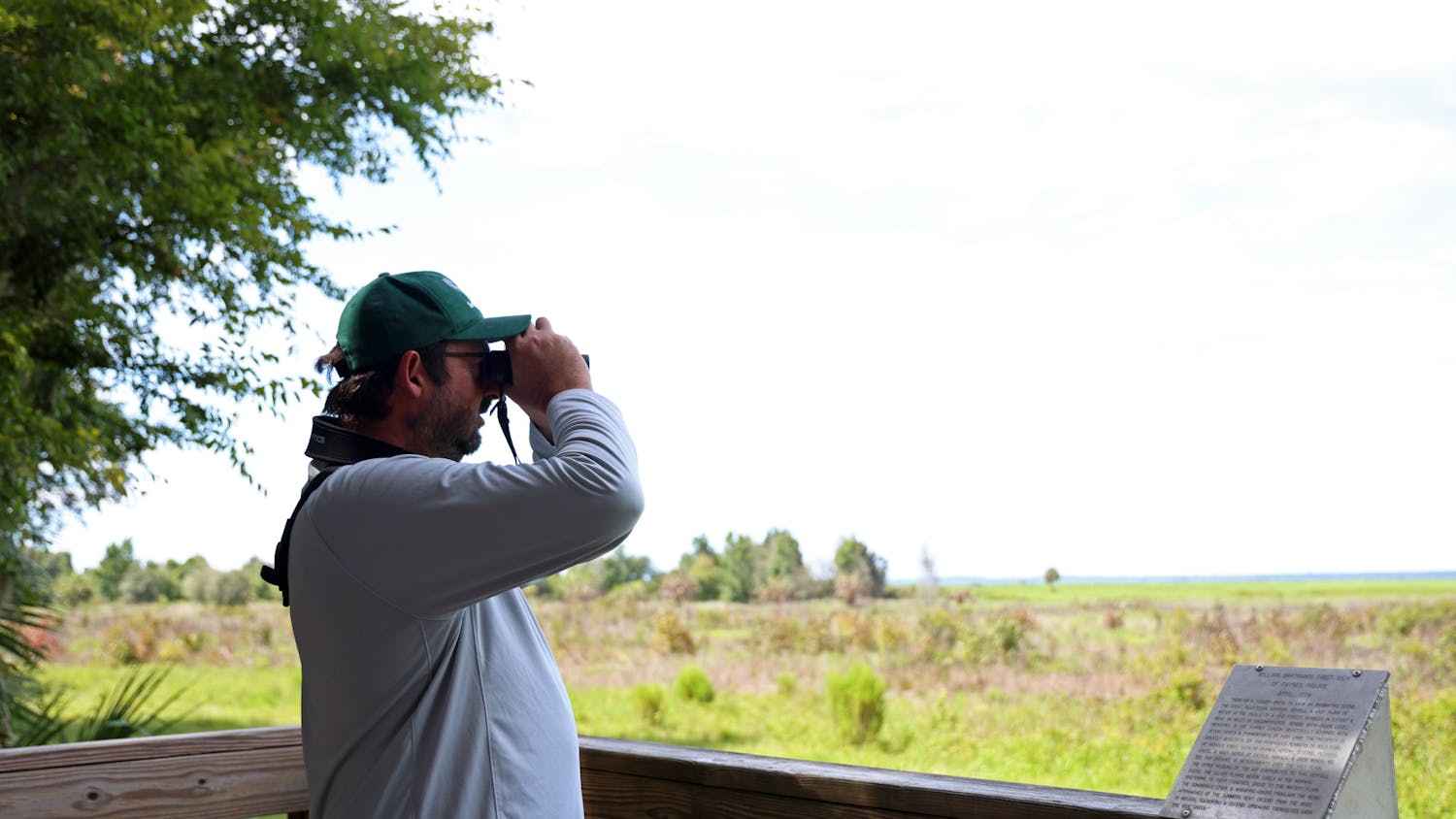UF is set to become the first research university with its own sea turtle hospital and rehabilitation center.
The hospital will be located in St. Augustine as part of the Whitney Laboratory for Marine Bioscience. It is projected to open this summer.
Catherine Eastman, the sea turtle program coordinator at the Whitney Lab and a long-time sea turtle volunteer, said activists realized the need for a sea turtle rehabilitation hospital in northeastern Florida in the late 1980s, but the right opportunity never presented itself until August 2013.
That summer, a member of the northeastern Florida sea turtle community grew tired of watching sea turtle hatchlings waddle to the ocean before they were strong enough.
“We are just ever so thankful that she was able to give us that gift and put the gears in motion,” Eastman said.
The hospital project broke ground in September 2014, and Eastman said she wants to have water flowing through the tanks in March before hopefully opening this summer.
Nichole Bishop, a UF interdisciplinary ecology Ph.D. student in the School of Natural Resources and Environment, said she was interning at the Whitney Lab last summer when she heard about the plans.
“I was very excited to hear that there was going to be a sea turtle hospital,” Bishop, 30, said. “I know that there is one in Georgia, but it is still several hours away.”
The Georgia Sea Turtle Center is about two hours north of St. Augustine and often takes injured or ill sea turtles from northeast Florida and rehabilitates them. Some diseased sea turtles cannot cross state lines due to regulations, so they have to be transported even to locations as far as the Florida Keys.
Those turtles are often plagued with a virus called fibropapilloma, Eastman said. The virus is contagious, and only about three of the 15 sea turtle hospitals in Florida are equipped to treat it.
Lexie Beach, the communications coordinator for the Sea Turtle Conservancy — an organization that funds sea turtle research and rehabilitation — said treatment is pricey and requires infected turtles be treated separately from the others.
Eastman said one of the biggest priorities for the new hospital is to treat that disease.
Although the process of establishing the hospital is sometimes painstaking, she knows the work will be worth it.
“This isn’t just for the turtles,” Eastman said. “It’s for a community.”
[A version of this story ran on page 1 on 2/24/2015 under the headline “UF to open sea turtle hospital this summer”]





